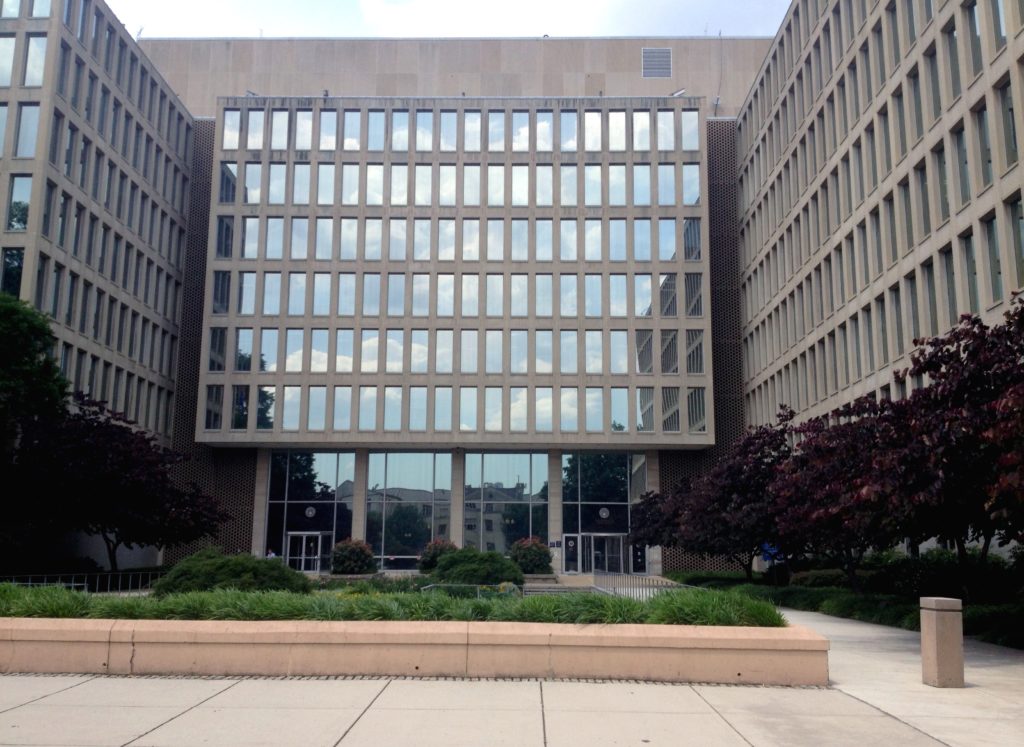
The Washington Post reports that
President Biden on Thursday made a nomination to fill the long-vacant position of inspector general at the Office of Personnel Management, a watchdog office that has at times publicly clashed with top management of the federal agency.
Nominee Krista Boyd is chief counsel for oversight and policy on the House Oversight and Reform Committee, which oversees federal workplace matters. Boyd has worked on Capitol Hill for more than two decades with a focus on issues including whistleblower protection, transparency and strengthening the access to agency information for inspectors general and other watchdogs, an announcement said.
Ms. Boyd’s nomination is subject to Senate confirmation.
On the Delta variant front, Govexec.com informs us that
The Biden administration released new guidance on Thursday about implementing the COVID-19 vaccine mandate for federal employees, which says even those on telework or remote work must get vaccinated.
The guidance implements an executive order President Biden issued on September 9 requiring federal employees to get vaccinated against the novel coronavirus, unless they request an exemption. The Safer Federal Workforce Task Force said on Monday that November 22 is the deadline for employees to get fully vaccinated or possibly be subject to progressive discipline. * * *
Postal Service employees are not covered by the mandate, but they will be subject to the forthcoming emergency temporary standard from the Occupational Safety and Health Administration (OSHA) that will require vaccines for companies with 100 or more employees, the senior administration official pointed out. That was another coronavirus measure the president unveiled last week.
“Our workplaces are subject to regulations from the Occupational Safety and Health Administration,” USPS said in a statement on Thursday. “Therefore, we are working closely with our union leadership so that once OSHA’s COVID-19 Vaccination Emergency Temporary Standard is issued we can move quickly to determine its applicability to our employees and how best to implement [it].” * * *
Other topics covered in the update are: who is considered fully vaccinated and the timeline for getting fully vaccinated (depending on which vaccine individuals receive); vaccination dates for those who are starting government service after November 22; what protocols employees should follow before becoming fully vaccinated; and how agencies should collect and maintain documentation of vaccination for employees. Agencies must collection documentation even if employees previously attested to being vaccinated.
The Society for Human Resource Management discusses what to expect from OSHA on the vaccination screening program it is developing for private employers with more than 100 employees.
In mergers and acquisitions news, the Deseret News reports that
Intermountain Healthcare announced Thursday that the organization is merging with SCL Health, a faith-based, nonprofit health care organization based in Colorado.
The two organizations are located in adjacent areas with no geographic overlap, so together they will employ more than 58,000 caregivers, operate 33 hospitals and run 385 clinics across Utah, Idaho, Nevada, Colorado, Montana and Kansas.
SCL Health is a $2.8 billion health network that provides comprehensive, coordinated care in hospitals, clinics, home health, hospice and mental health services across Colorado, Montana and Kansas. It brings eight hospitals and more than 160 physician clinics into the merger. Their hospitals will retain their names and their Catholic identity, directives and values.
The merger, which is subject to regulatory approval, is expected to close early next year.
From the studies front —
- The Centers for Disease Control released updated adult obesity prevalence maps for the U.S. yesterday.
- The Employee Benefits Research Institute is offering an issues brief on trends in health savings account balances, contributions, distributions and investments and the impact of COVID-19 thereon.
From the reminders front, Fedweek explains the “five year rule” for continuing FEHB and FEGLI coverage into a civil service retirement.
As a rule, you can only continue your FEHB and/or FEGLI coverage into retirement if you are 1) currently enrolled, 2) have been enrolled for at least five years or from your earliest opportunity to enroll, and 3) are retiring on an immediate annuity (including disability).
Further, if you are a FERS employee who is retiring on an immediate annuity but postponing its receipt to a later date to reduce or eliminate the 5 percent per year penalty for retiring under the MRA+10 provision (minimum retirement age—currently 57—with at least 10 but less than 30 years of service), you’ll be able to reenroll in the FEHB program when your annuity begins. Note: If you leave government before being eligible to retire and later apply for a deferred annuity when you have the right combination of age and service, you can’t reenroll in either program.
While there is an automatic waiver of the FEHB five-year rule if you are accepting an offer of early retirement from your agency, no waiver is possible for FEGLI. Nor are waivers of the “currently enrolled” or “retiring on an immediate annuity” requirements available under current law for either program.
